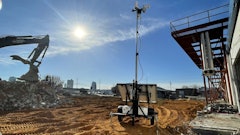
Interesting times, aren’t they? If you’re in the construction business, every day is an adventure. It’s never a dull moment if you are managing jobsites and are responsible for bringing jobs in on time and on budget. Among the things impacting job costs, you have:
- Tariffs on materials
- A shortage of personnel to do the work
- Interest rates going up
- Technology and its implementation — which initially makes costs higher and eventually brings them down if used faithfully
If you’re dealing with any of these issues, and I’m sure you are, I advise you to take time to discuss them with your vendors and other non-competing contractors. I have mentioned performance groups before, where members share financial data, discuss ways to obtain better results and measure improvement in the numbers as changes are implemented in each member’s business. I know they work because I participate in these groups.
Take Lessons From Others
There is no doubt that a high percentage of contractors are dealing with the issues noted above, and there are those who have figured out how to deal with them without a negative impact on job completion and expense. If they’re willing to share their methods with you, and can convince you they know what they’re talking about, why reinvent the wheel if you don’t have to?
The trick is to find a group of contractors who are not competitors — no two group members should cover the same territory or perform the same type of work. The other trick is to find someone to manage the meetings and compile the financial data.
If you can’t find someone in your territory to do it, I suggest you head over to your local equipment dealer to see if they would be interested in hosting group meetings at their place of business. It would be good for you and it’s good for them.
Believe me when I say vendors know what’s going on in their territory. They know contractors are facing tariffs, interest rates and lack of available talent, because they have to know in order to be able to service their customers properly. The more they learn about the current status of your part of the construction business, the better off they are.
Equipment dealers also have experience with the performance group setting that can serve as an example for your group. They have access to OEM groups consisting of dealers that sell just the OEM’s products; performance groups that are made up of other non-competing dealers; plus local financial comparisons.
In the latter case, a company called Rouse Analytics compiles all the financial data from local dealer groups (competitors) and compares each dealers’ details and metrics against other members in the group to compile overall metrics, trends and averages. Dealers know who the other members are but do not see their individual data. They can compare pricing, costs, performance by sales personnel, gross margins, rental statistics and other performance measures.
Armed with this information, the next time a dealer hears it will have to lower its price to get the deal, it will know if that is true or not. This is amazing data that dealers receive on a quarterly basis. What if you could have the same type of information?
The point here is you don’t have the time or budget to keep trying new management changes to help you keep up with the competition in hopes the changes will produce profitable results. Save that time and money and make an effort to see what other folks are doing that is working, and then try it on your operation.
Compare Notes
So how about tariffs? Are your vendors really incurring these costs or does every invoice have a line item for “steel surcharge” or something similar? If you belong to one of these groups, you could call other group members and ask them what they’re seeing and how tough the vendors are being trying to collect the added costs. From my standpoint, I suggest asking for inventory delivered before the tariffs were attached; trying to negotiate the tariffs down to zero; or maybe avoiding buying anything new at the moment and renting what you need until the air clears.
Checking with other contractors and vendors also goes for the adoption of technology and other ways to reduce costs and become more efficient. Using technology allows contractors to do more with less people at a time when finding people is a problem.
If you want to stay in business, you better find a way to identify what technology you need and which version works the best. Again, if you have a list of folks to call, it would help. That list should include your equipment vendors because they know who is using what and what works.
Use other peoples’ knowledge to help you make cost-effective decisions. Eventually, they will be calling you for advice.

















